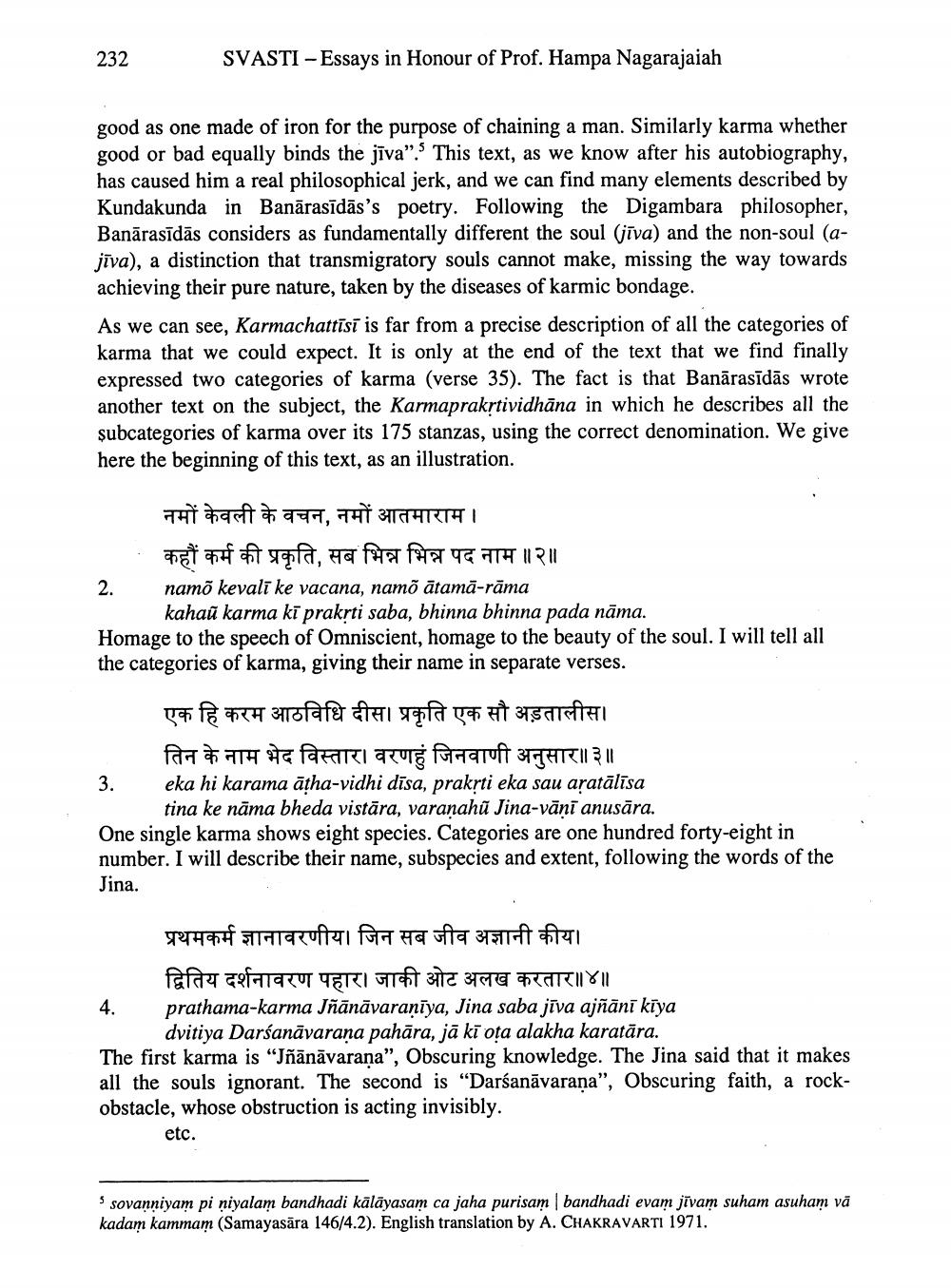________________
232
SVASTI – Essays in Honour of Prof. Hampa Nagarajaiah
good as one made of iron for the purpose of chaining a man. Similarly karma whether good or bad equally binds the jīva". This text, as we know after his autobiography, has caused him a real philosophical jerk, and we can find many elements described by Kundakunda in Banārasīdās's poetry. Following the Digambara philosopher, Banārasīdās considers as fundamentally different the soul (jīva) and the non-soul (ajīva), a distinction that transmigratory souls cannot make, missing the way towards achieving their pure nature, taken by the diseases of karmic bondage. As we can see, Karmachattisi is far from a precise description of all the categories of karma that we could expect. It is only at the end of the text that we find finally expressed two categories of karma (verse 35). The fact is that Banārasīdās wrote another text on the subject, the Karmaprakstividhāna in which he describes all the şubcategories of karma over its 175 stanzas, using the correct denomination. We give here the beginning of this text, as an illustration.
नमों केवली के वचन, नमों आतमाराम। - कहौं कर्म की प्रकृति, सब भिन्न भिन्न पद नाम ॥२॥ 2. namõ kevali ke vacana, namõ ātamā-rāma
kahaū karma ki prakrti saba, bhinna bhinna pada nāma. Homage to the speech of Omniscient, homage to the beauty of the soul. I will tell all the categories of karma, giving their name in separate verses.
एक हि करम आठविधि दीस। प्रकृति एक सौ अड़तालीस।
तिन के नाम भेद विस्तार। वरणहुं जिनवाणी अनुसार॥३॥ 3. eka hi karama ātha-vidhi dīsa, prakrti eka sau aratālīsa
tina ke nāma bheda vistāra, varanahữ Jina-vāņi anusāra. One single karma shows eight species. Categories are one hundred forty-eight in number. I will describe their name, subspecies and extent, following the words of the Jina.
प्रथमकर्म ज्ञानावरणीय। जिन सब जीव अज्ञानी कीय।
द्वितिय दर्शनावरण पहार। जाकी ओट अलख करतार॥४॥ 4. prathama-karma Jñānāvaranīya, Jina saba jīva ajñānī kiya
dvitiya Darśanāvarana pahāra, jā kī ota alakha karatāra. The first karma is "ñānāvarana", Obscuring knowledge. The Jina said that it makes all the souls ignorant. The second is “Darśanīvarana", Obscuring faith, a rockobstacle, whose obstruction is acting invisibly.
etc.
5 sovanniyam pi niyalam bandhadi kālāyasam ca jaha purisam bandhadi evam jīvam suham asuham vā kadam kammam (Samayasāra 146/4.2). English translation by A. CHAKRAVARTI 1971.




